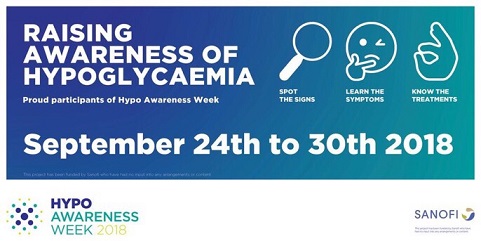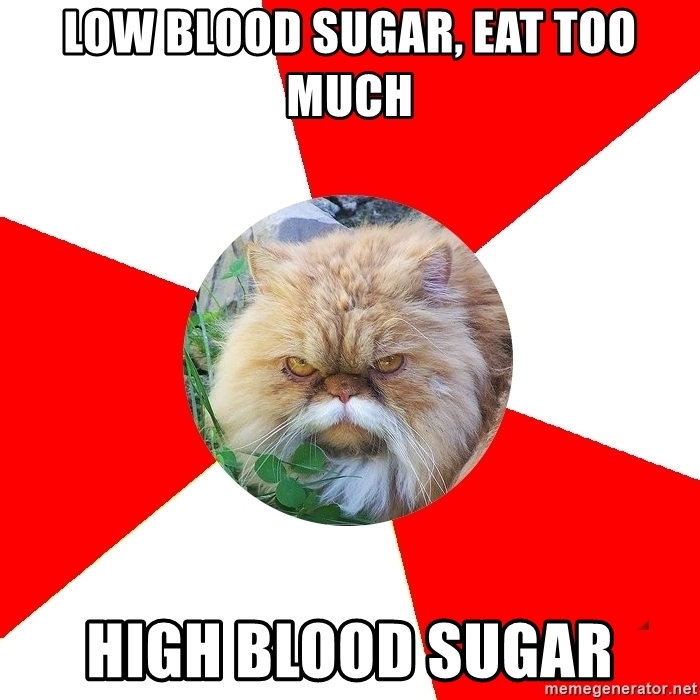Friends and family can be amazing when they try to appreciate our daily struggles and be compassionate, but the fact is that only we can know what it feels like to deal with chronic and largely invisible illness every day, every minute and every second without any reprieve from it. For me at least, despite a sense of patience and the fact that I know I am cared about, it is still all too easy to detect a sense that I am a miserable bore when I talk about diabetes woes. I’ve been told that I am obsessed with my own disease and need to find other things to focus on by so called friends. I’m always complaining, and there’s always some medical pain I am suffering with. It makes me feel like a huge drama Queen and hypochondriac.
There is some truth in it, in that yes distraction can be good and thinking about your problems can make you more miserable. But the reality is that this illness never relents, and it can’t be ignored. The control it has over our bodies and our minds is like a swarm of hovering gnats hovering around us as we stand in a room with the windows bolted shut. You can swat them away but you’ll never catch and kill them. The only way to breathe is to let in some fresh air, and give them a way out. It’s not fair that we should be told to ignore the biting to the back of our necks when it just means we’ll be left covered in a rash of sore red welts. Why should we be ashamed to vent, if that is something that helps relieve the burden and ache of it all a little?
So I may have gone on a bit of a tangent here, down a rabbit hole. But I do have a point ultimately and that is the urgency of some real action. Awareness is always positive but it isn’t enough, especially when it is rarely put out into the public sphere. We need strategy, we need government action, and crucially we need the godamn media to sit down and pay attention for once. They seem to be completely deaf, the newspapers anyway, some more guilty than others of course. But every time there’s a ridiculous headline, they lump type 1 and 2 together or suggest we cure ourselves with okra, cinnamon or a better sleep routine, we make a fuss and call them out, sometimes they apologise and then a few weeks later the exact same kind of thing occurs. It’s blatantly disrespectful and insulting to be placated and then blatantly ignored for the sake of causing a reaction or even a moral uproar to stats on the amount of money diabetes care is draining from the NHS. (And yeah, better care and earlier interventions=less hospitalisation and less expenditure, isn’t it a no brainer?!)
I am saying all this but do I have any idea myself? Well yes, I do. First of all with the papers - as a DWED representative I am challenging myself to call the big wigs at some national papers and confront them on their failings. Starting with the Daily Express, yep. So wish me luck, right now a frustration is motivating me but I may want to hide scared tomorrow. Which is why I am stating this here: I will do this. I will record those calls and I will report back in a later blog.
Second is a project where you all can chip in and put your case forward if you wish. When I spoke to (the truly amazing) Norman Lamb in May for a recording which is uploaded in our members area, he offered to take DWED’s case forward to Jeremy Hunt and have it raised in parliament. This would be in the form of a letter that we will address to Jeremy Hunt that will specify just how crucial it is that people with T1-ED and Diabulimia have access to better care, which can be done with the shuffling of money, with training across the boards, more knowledge given to GP’s, AN OFFICIAL DIAGNOSIS. It may fall on death ears, but it’s worth a good damn shot.
What we need from you are testimonies that we can add to the letter. Real life truths from people with T1ED that want to push the message that further change is needed NOW, those that feel devastated and worn down, and let down by a lack of adequate support services. Submissions from friends, family and carers would also be so helpful, especially as sometimes their loved one is unable to advocate for themselves, or in the worst, most saddening instances, they are no longer with us to do so.
I will be setting up an online form for submissions in due course and will amend this blog with that link. [4/7/18: Please find the submission form here.]
Keep fighting everyone, it’s cliché but all of you out there with type-1-diabetes, with or without an eating disorder, are fighters and probably so much stronger than you believe. Hold on. Let’s act on this. We are all in this together. Keep looking at the stars instead of blackened night’s sky. We might not ever be able to shoot for the moon but we can aim for the stars.
By Claire Kearns.












![xookiw].jpg](https://images.squarespace-cdn.com/content/v1/57839ffa2e69cfb0b30cffd2/1530120242806-QW2PBYCJQ1UIJO99ITBT/xookiw%5D.jpg)